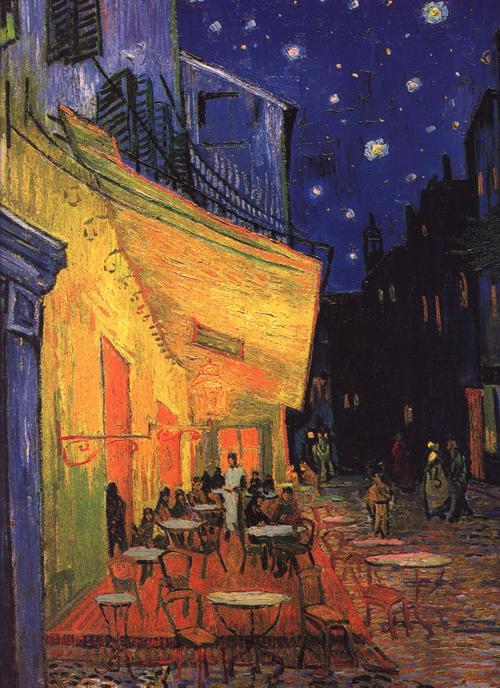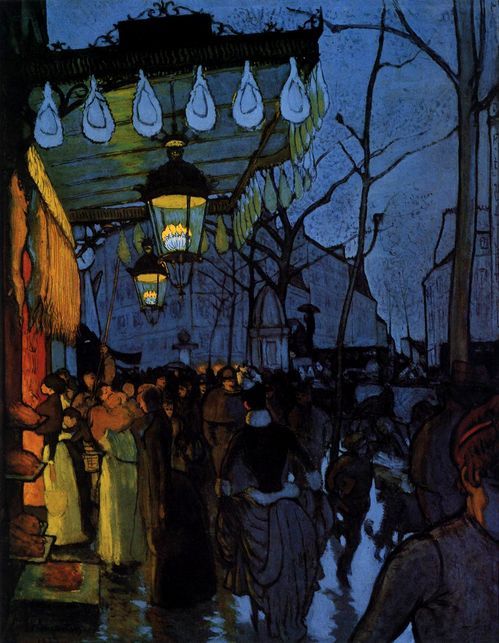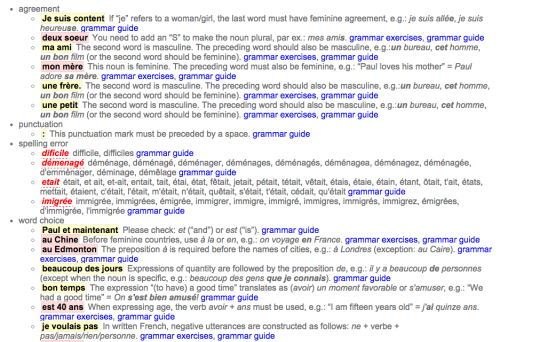Ellie I Southern California Speaks: English and Spanish Studying: French, Russian, and Italian
Don't wanna be here? Send us removal request.
Text
sp*niards: ‘vosotros’
the rest of the hispanohablantes:

28K notes
·
View notes
Text
Unlikely simultaneous historical events
A poster on Reddit asks: What are two events that took place in the same time in history but don’t seem like they would have?
504K notes
·
View notes
Text
If there’s anything I’ve realized in studying 3 foreign languages for 7 years, it’s that, unless you’re language learning for strictly work or survival reasons, if you’re not interesting in the culture/history/politics/art of the main speakers of your target language to a significant degree, you’ll lose interest.
This mainly applies to extended courses of language learning. If you’re at A2 in your language and that’s your goal, then this isn’t much of an issue. However, if you wanna be fluent in a language but you really don’t care about the culture of the people who speak this language as their first, you’ll easily become demotivated after time.
In learning French for 6+ years, it’s obvious to me how rooted the French language is to the pride and culture of French people, and the way it links with their fashion, food, literature and history. It’s not like how English is as a lingua franca and with a multitude of standard dialects. If I didn’t become interested in France as a whole, there’s no way I’d be able to study French. Language learning simply cannot be done in isolation.
This is partially why I decided to drop certain languages at an early level, like Persian, Hindi, Arabic and Irish Gaelic. As much as I think it’d be badass to speak these languages, I frankly don’t see myself spending significant times in these countries, nor am I invested in the culture and history of these countries to the extend to which I am with France, Spain, Italy, Canada, Germany, etc. Call me Euro-centric in my hobbies, but I’m an Indian girl from the Caribbean- these things interest me. I don’t think its practical for me learning Hindi fluently when I don’t care to set foot in India, analyse Hindi texts nor converse with Indians in work or for fun to an extensive degree. I liked two Sanjay Leela Bhansali movies, and that’s about it.
My advice is to learn languages you’d like to practically use in your life- ones that are important to you based on your interests as well as your location in the world. You can’t learn a modern language from a textbook only- that’s rather torturous. Language learning in essence is about communication and comprehension, two things only achieved through different levels of immersion. To become fluent and remain motivated, you need to be attached to the language beyond the surface level, and that includes learning the history, culture, art, religion, etc of the principal first-language speakers of your target language.

420 notes
·
View notes
Photo


“The French called this time of day “l’heure bleue.” To the English it was “the gloaming.” The very word “gloaming” reverberates, echoes— the gloaming, the glimmer, the glitter, the glisten, the glamour—carrying in its consonants the images of houses shuttering, gardens darkening, grass-lined rivers slipping through the shadows.” (Joan Didion)
Street Scenes (comparatives) Vincent Van Gogh, Café Terrace at Night | Louis Anquetin, Avenue de Clichy
9K notes
·
View notes
Text

bir kahve ister misiniz? 🤗☕️
managed to get the little prince in turkish on my trip to istanbul (also this very cute traditional coffee set) 🌙✨
197 notes
·
View notes
Photo

India. Mandawa. Rajasthan. 1985. Bruno Barbey.
8K notes
·
View notes
Photo


— Не существует никаких секретов достижения успеха. Единственное, что нам на самом деле нужно – тщательная подготовка, добросовестная работа и извлечение уроков из поражений.
1K notes
·
View notes
Note
Hello! So I was reading an article in Spanish, and I noticed they were using "asín" as if it was "así". Is this a common occurrence in the Spanish you're accustomed to speaking? Do you mind trying to explain it to me?
It’s a way of spelling and pronouncing así
It’s not considered “correct”, but it’s something like a vulgarismo which means it’s common in some places among some people, but it’s usually a mark of a regional accent or lower levels of education, or something more common among poorer populations.
That’s not a bad thing. Some people do it on purpose, although it’s something like “ain’t” in English… something people say sometimes, but wouldn’t be considered “correct”
48 notes
·
View notes
Quote
Camminiamo una sera sul fianco di un colle, in silenzio. Nell'ombra del tardo crepuscolo mio cugino è un gigante vestito di bianco, che si muove pacato, abbronzato nel volto, taciturno. Tacere è la nostra virtù. Qualche nostro antenato dev'essere stato ben solo - un grand'uomo tra idioti o un povero folle - per insegnare ai suoi tanto silenzio.
Cesare Pavese, “I mari del Sud”
One evening we are walking on the flank of a hill, in silence. In the shadow of late twilight my cousin is a giant dressed in white, moving quietly - his face made brown by the sun; silent. Silence is our virtue. Some ancestor of ours must have been quite solitary –a great man among idiots or a poor fool– to teach his descendants so much silence.
<
p>(via langsandlit)
33 notes
·
View notes
Text
who doesn’t love languages? or free resources? or free! language! resources!?
i was on duolingo, reading a discussion, and saw a link to a free swedish grammar book! and when i checked the website, there were loads of free language books in downloadable pdf form just waiting to be put in a tumblr post. i even used proper capitalisation for the book names! but that was shortlived, as i have a nonchalant online presence to consider.
Arabic- Grammar of Modern Standard Arabic, Colloquial Arabic (Levantine), Arabic: An Essential Grammar Cantonese- Basic Cantonese, Intermediate Cantonese Catalan- Colloquial Catalan Croatian- Colloquial Croatian Czech- Czech: An Essential Grammar Danish- Colloquial Danish Dutch- Dutch: A Comprehensive Grammar, Dutch: An Essential Grammar English- Colloquial English, English: An Essential Grammar Estonian- Colloquial Estonian French- Colloquial French, Modern French Grammar, (another) Modern French Grammar, Student Grammar: French Georgian- Georgian: A Learner’s Grammar German- Basic German, German: An Essential Grammar, Intermediate German, Modern German Grammar, (another) Modern German Grammar, German Synonyms Greek- Essential Grammar: Modern Greek Hebrew- Modern Hebrew: An Essential Grammar Hungarian- Hungarian: An Essential Grammar Icelandic- Colloquial Icelandic Irish- Basic Irish, Colloquial Irish, Intermediate Irish Italian- Basic Italian Grammar, Colloquial Italian, (another) Colloquial Italian, Intensive Italian Workbook, Modern Italian Grammar, Modern Italian Grammar Workbook Japanese- Colloquial Japanese Norwegian- Colloquial Norwegian Polish- Intermediate Polish Portuguese- Portuguese: An Essential Grammar, Portuguese of Brazil Romanian- Romanian: An Essential Grammar Russian- Colloquial Russian, Contemporary Russian, Intermediate Russian, Russian Grammar Scottish Gaelic- Colloquial Scottish Gaelic Serbian- Serbian: An Essential Grammar Swahili- Colloquial Swahili Swedish- Colloquial Swedish, Swedish: An Essential Grammar Tamil- Colloquial Tamil Thai- Thai: An Essential Grammar Turkish- Turkish: A Comprehensive Grammar Yoruba- Colloquial Yoruba
obvious disclaimer: i don’t own any of the rights etc etc to any of the above etc etc, i just thought i’d share.
and while i’m here, if you want an actual free online course to do, FutureLearn has some language ones (as well as lots of other disciplines too!) i did a few modules of their Italian For Beginners which i really had fun doing and i learnt a lot of the basics- unfortunately they don’t offer those at the moment, but do check back as they introduce new courses all the time!
Open University offers loads of free courses, including some language ones. i haven’t done any language specific ones through OU, but i have done a few history ones which i enjoyed (although personally, i prefer the format and structure of FutureLearn, if i’m being honest).
Open Culture seems to have lots of language courses (48 languages, to be precise), although i have never personally used their resources they have been recommended to me, and they seem to offer a lot of languages not previously covered by any of the above, so it may be worth a look!
YouTube and Spotify also offer some good visual/aural learning resources which really helps with pronunciation, but you’d have to check for your specific target language. i am currently trying to learn swedish and italian (although i have fallen dreadfully behind in the latter) and i’ve found some useful things on both!
5K notes
·
View notes
Note
Hey, this may be a stupid question, but why do they shorten verbs in songs? For example, in Azzurro, there's a line where the singer says something like "neanche un prete per chiacchierar" But the verb is chiacchierare right? I've heard it in a few more songs too. Is it just to sound better? This is definitely not one of the most important questions, I know, but I'm just curious to know If there is a reason haha
Not a stupid question at all. Yes, it’s basically to make a word a syllable shorter and make it flow better in the song. For example, chiac-chie-ra-re is 4 syllable but chiac-chie-rar is three.
This is definitely non-standard but it’s usually common in poetry and song lyrics. In the north of Italy it’s also common to hear -iam instead of -iamo (andiamo > andiam), -anno instead of -an (fanno > fan) and son instead of sono.
This is called troncamento in Italian and “apocope” in English (It. apocope), and it’s only used in standard Italian when you have two infinitives following each other or in fixed expressions (e.g. voler bene).
When you have two infinitives following each other, the first one is always a modal verb. So you’d always hear poter vedere, voler dormire, dover studiare, saper fare, etc. With expressions, the situation is more complicated, but it usually happens when you have an infinitive (any kind) plus a word starting with a consonant, as in voler bene, sentir messa, andar lontano, etc. But then again, apart from the first two expressions, the last one sounds weird to my ears because it’s not standard or a fixed expression, so it might be more used in some areas rather than in the whole country.
31 notes
·
View notes
Text
IF YOU STUDY FRENCH, LISTEN UP:
Bon Patron will save your life.
What is it?
a free grammar checker that was developed by French professors
not extremely sophisticated and won’t catch all of your errors
but WILL prevent you from making dumb conjugation or agreement mistakes.
MUCH BETTER THAN MICROSOFT WORD
What does it look like?


What’s it do?
it marks what mistakes you made (writes them out and you can also hover over them - I couldn’t screenshot the entire list because it is VERY THOROUGH)
(I feel like I need to mention this is an automatically generated example, I’m bad at french but I’m not that bad)
says what type of mistake it is
and what you can do to fix them.
What do I do with it?
Obviously don’t rely on it 100%, but if you’ve been staring at an essay for five hours it’s so nice to be able to run it through and have it catch the article you misused in the middle of the fourth paragraph.
make sure you check again after correcting the errors because sometimes new ones will be flagged
double check your work, sometimes it suggests corrections that you don’t need to make (since it’s a computer program and you’re a person)
BUT GO FORTH AND IMPROVE YOUR FRENCH GRADES (& share the good news)
32K notes
·
View notes
Text
“Bilingualism strikes me as a kind of synesthesia. Instead of seeing colors associated with letters and words, instead of hearing melodies, what I hear with language is the play and echo of the other language. The option to say it differently, and thus to live it differently…”
— Yoojin Grace Wuertz, from “Mother Tongue"
25K notes
·
View notes
Photo










Masseria Salamina, Puglia, Italy. Brushfire Photography.
10K notes
·
View notes













